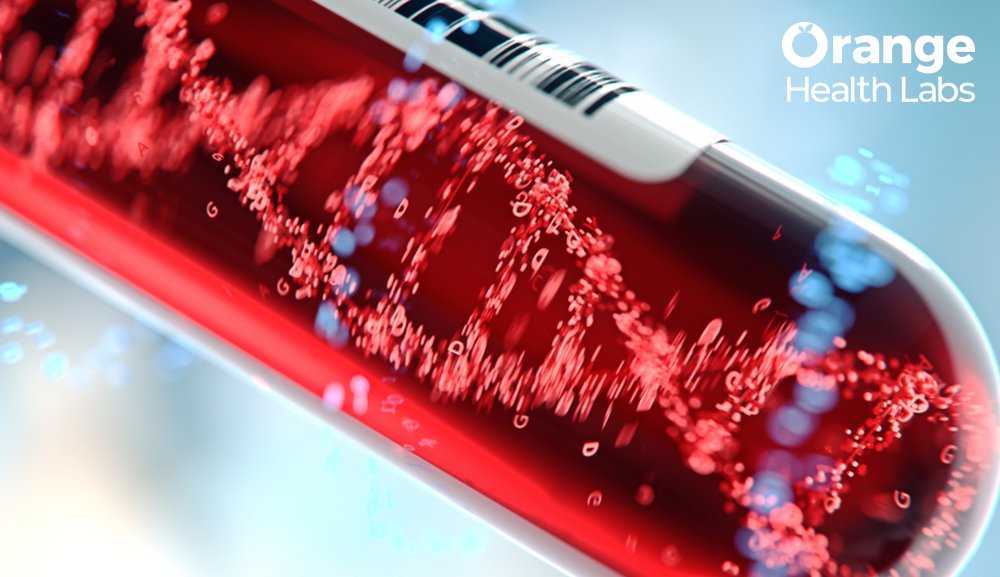Search for tests or checkups
SupportInterpreting Positive Beta HCG Test Results: Significance in Pregnancy Detection

A positive pregnancy test is probably one of the greatest joys one can experience. The beta hCG test plays a pivotal role in providing confirmation for a pregnancy. This article delves into the mechanics and significance of the beta hCG test as a definitive method for confirming pregnancy.
The mother and the baby are connected through the placenta, which provides nutrition and oxygen to the developing baby. The entire process of pregnancy is supported by a hormone, HCG, that is released by the placenta. Pregnancy tests work by detecting this hormone in women’s blood or urine. The HCG test plays a vital role in confirming pregnancy. If you are beta HCG test positive, it means that you are pregnant. However, sometimes these results can be false-positive, which means that there is no pregnancy even though the test has shown positive beta HCG pregnancy test results. Therefore, it is crucial to understand the results and consult a doctor if required.
Let us now discuss how the HCG test works and its importance in the detection of pregnancy.
Beta HCG Test: Basics and Purpose
The placenta releases the hormone HCG during pregnancy. HCG stimulates the ovaries to produce hormones like progesterone and oestrogen that prepare the uterus for the growth and development of the foetus and also signal the body to stop menstruation. The beta HCG test checks for the presence of HCG in the blood.
The level of HCG in the blood can indicate normal or abnormal pregnancy and even miscarriage.
Connection Between the Beta HCG Test and Pregnancy Detection
After conception, it takes almost 7 to 11 days for the placenta to start producing the HCG hormone. Therefore, the beta HCG reports positive results 7 to 11 days after conception, thus detecting pregnancy at an early stage. In the first few weeks of pregnancy, HCG values double every 24 hours, thus allowing the detection of HCG on the beta HCG test early on in the pregnancy.
Beta HCG Positive Range
If you are wondering what is a positive beta HCG test and what it indicates, here’s how you can interpret it.
A pregnancy is deemed negative if the HCG level is below 5 mIU/mL, while a level above 25 mIU/mL is indicative of a beta HCG positive pregnancy test. If your beta HCG positive range falls between 6 and 24 mIU/mL, it is considered an uncertain range and requires a retest to observe if the levels increase, thus confirming a pregnancy.
As discussed earlier, during early pregnancy, HCG doubles every day. This doubling continues for the first 2 months of pregnancy. The highest point is typically reached around the 10th week (21/2 months) of gestation, then the HCG levels decrease till the 4th month, after which, they remain constant until delivery.
Understanding Positive Beta HCG Test Results
A positive beta HCG blood test means the level of HCG hormone in blood or urine is greater than 25 mlU/mL. While the beta HCG blood test can measure beta HCG at levels as low as 1-2 mIU/mL; the beta HCG urine test identifies HCG at higher concentrations, usually around 25-50 mIU/mL.
Another difference between blood and urine tests is that the urine pregnancy test is qualitative, that is, it only indicates a positive or negative result for pregnancy, whereas the blood test is quantitative, that is, it estimates the amount of HCG in blood. A urine test can detect pregnancy 2-3 days later than a blood test and the chances of a false negative result are also higher with urine tests. Thus, the beta HCG blood test is more sensitive and accurate than the urine test and is usually used to confirm the pregnancy detected by a urine test.
A beta HCG test can detect pregnancy within 7–11 days after conception, and the physical symptoms mostly take almost a month to appear. Therefore, the HCG test confirms the pregnancy even before the physical symptoms appear in the mother.
Factors Affecting HCG Levels
- Gestational age: Gestational age indicates the number of days or months of pregnancy. HCG levels rise for the first few months of pregnancy, and after a certain period, they start declining.
- Multiple pregnancies: It means having two or more babies at a time. Multiple pregnancies result in increased HCG levels.
- An ectopic pregnancy: In this type of pregnancy the embryo grows outside the uterus. In ectopic pregnancies, the level of the HCG hormone does not rise at the same rate as in a normal pregnancy. An unusual/abnormal fall or rise in HCG levels may indicate an ectopic pregnancy.
Seeking Professional Advice
A positive pregnancy test result will let you know your pregnancy status, but it cannot tell you if the pregnancy is healthy. The change in your HCG levels is of more significance than the actual level of HCG as the level may vary from person to person. Therefore, it is necessary to consult a healthcare professional to confirm the pregnancy and monitor HCG levels to ensure the pregnancy is progressing well.
Along with HCG levels, regular follow-up tests like foetal ultrasound and maternal blood tests are necessary to detect any birth defects in the foetus during its development. Genetic screening including special tests such as the multiple marker test, amniocentesis and chorionic villus sampling may also be needed in some cases.
Beta HCG positive pregnancy test results play a crucial role in confirming pregnancy. Positive beta HCG pregnancy test results indicate the presence of the pregnancy hormone HCG in your blood or urine. Mostly, women use the urine pregnancy test because of its ease of accessibility and usage. However, it's essential to note that while a positive result is a strong indicator of pregnancy, seeking medical guidance is vital for proper confirmation and ongoing care.
For a seamless pregnancy journey, book your pregnancy tests and health check-up packages with Orange Healthcare now. Their expertise and services can offer you the care you need throughout your pregnancy

10 Blood Tests Everyone Should Consider

8 Drug Allergy Symptoms and Their Causes
